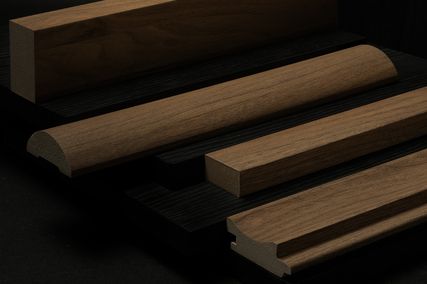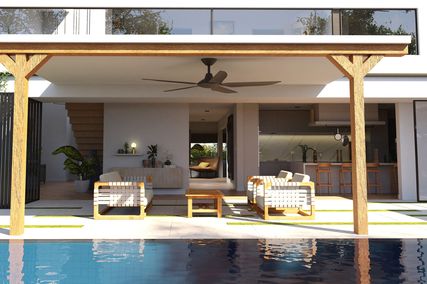Isabelle Oliveri of Fitzroy-based Studio IOD recently designed the interior of Chiba, a Japanese restaurant in Melbourne.
Contemporary materials are used throughout the design, which extends over two levels. A heavy set, recycled red gum timber communal table welcomes the diner at the entry. Above them, bright, glossy red tube pendant lights mix seamlessly with woven bulbous feature lights that create ambient lighting without overwhelming the space. On the mezzanine floor, a modern bar and timber screened lounge area provides a more discrete designing experience. Whether seated in the rounded, earthy, textured banquette seating on the ground floor, or in one of the upstairs private rooms enclosed in translucent contemporary Japanese inspired screens, customers feel at ease dining alone, as a couple or in a group.
On the dining tables, chopsticks rest on concave tiles. These tiles, Crochet, also feature on the two-storey entry wall that wraps around into the main dining area. Downlights shining on the wall highlight the basketweave pattern of the tiles.
The Crochet tiles are part of Artedomus’s architectural ceramics collection from Inax Japan. Each tile is a simple shape, but when laid together the tiles look as if they are woven, and create a striking shadow pattern. Inspired by traditional Japanese woven bamboo tools, the tiles are available in ivory, charcoal and chocolate. The tiles can be laid horizontally or vertically, come in two sizes, 87 × 27 mm and 57 × 27 mm, and have a thickness of 15 mm. Both sizes are supplied on 300 × 300-mm sheets.
Inax ceramics contain a minimum of 40 percent recycled material and comply with ISO 14001 – Environmental Management Systems. Ceramic cladding is a low-maintenance alternative to paint or render. It can cover joins in underlying concrete, wrap around right angles and curves, and extend the lifespan of the building, as the tile requires minimum grout.
Inax is known for creating well-made architectural ceramics designed by traditional artisans. The company was founded in the ancient Japanese city of Tokoname after producing terracotta for Frank Lloyd Wright’s Imperial Hotel, Tokyo.




















